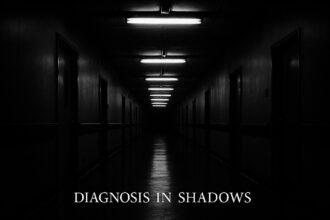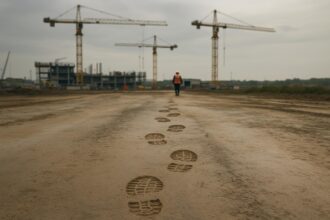A group of current employees has lodged a whistleblowing complaint with the Charity Commission alleging governance failures, a toxic internal culture and insufficient oversight as ministerial pressure and a contested restructure threaten funding, redundancies and the winding down of public‑interest AI research.
Staff at the Alan Turing Institute have lodged a whistleblowing complaint with the Charity Commission alleging failures of governance and a toxic internal culture, warning that recent government pressure over funding risks the institute’s future. The complaint, filed by a group of current employees, lists eight areas of concern and says the institute is “in danger of collapse” if ministerial demands translate into withdrawn support. According to the original report, staff describe a culture of “fear, exclusion and defensiveness” and say an earlier internal letter expressing no confidence in the board was not addressed. (This account was provided to The Guardian by staff.)
The complaint specifically criticises the board of trustees, chaired by Douglas Gurr, saying trustees have not met core legal duties such as setting strategic direction or ensuring accountability, and that there has been insufficient oversight of senior leadership departures and appointments. It comes while the institute is implementing a controversial restructuring that has placed roughly 50 staff—about 10% of the workforce—at risk of redundancy and will close or pause multiple research strands. Staff allege that privately expressed concerns from industry partners and explicit warnings from government ministers have exacerbated an already fraught internal environment.
Government pressure has been explicit. In a letter reported in July, the technology secretary urged the institute to shift its strategic focus towards defence, national security and sovereign capabilities and signalled that longer‑term funding could be reviewed next year if delivery did not improve. The same letter said the institute should “continue to receive the funding needed to implement reforms,” while making clear that future support would be conditional on changes to leadership and strategy. That intervention followed a period in which UK Research and Innovation confirmed substantial state investment in the institute: a £100 million package announced in March 2024 intended to bolster research across health, environment and defence and to support the UK’s AI strategy.
Those developments have placed the institute’s leadership under scrutiny. Douglas Gurr, appointed chair of the board in July 2022 after a career including senior roles at Amazon and the Natural History Museum, is portrayed by supporters as a governor with private‑sector and charitable experience; critics say the board has nevertheless failed to assert effective oversight. The complaint also calls into question the executive leadership under chief executive Jean Innes, who took up the post in July 2023 and whose background spans government, private sector and non‑profit roles. Staff allege that a series of senior exits and appointments were handled without sufficient transparency or accountability.
The restructuring is already affecting research outputs. Projects reported to be closing or being mothballed include work on AI systems to detect online harms, tools for policymakers tackling housing affordability and inequality, analyses of the health‑inequality impacts of policy decisions such as lockdowns, and studies of how government and media interact. Other strands expected to be dropped or paused include research into social bias in AI outcomes, the effects of AI on human rights and democracy, and efforts to develop a global approach to AI ethics. Staff warn these cuts will curtail the institute’s capacity to pursue public‑interest research.
The institute says staff previously brought concerns to its funder—UK Research and Innovation—and that an independent investigation did not find grounds for action. A spokesperson for the institute told reporters that a whistleblower complaint had been filed last year with UKRI and that an independent review found “no concerns.” The Charity Commission itself has declined to confirm or deny whether it has received the new complaint, saying it cannot reveal whether it holds information about allegations in order to protect the identity of any whistleblowers—an approach consistent with Freedom of Information rulings that permit such neither‑confirm‑nor‑deny responses where disclosure could prejudice regulatory enquiries.
The Alan Turing Institute has framed the changes as a necessary “new phase”, saying the organisational overhaul is intended to sharpen delivery and respond to national needs including defence and sovereign capabilities. That explanation was set out by an institute spokesperson in response to reporting of the staff complaint and the project closures. Observers and some staff, however, caution that narrowing the institute’s remit risks undermining its role in independent, public‑interest research and could damage public trust in UK AI governance at a moment when scrutiny of algorithmic harms is rising. Critics reported in the press argue that a pivot towards defence and industry priorities should not come at the cost of work on online safety, fairness and democratic resilience.
For now the immediate practical consequences are clear: redundancies are being proposed, multiple research projects are being wound down or paused, and relations between staff, the board, funders and ministers are strained. UKRI’s earlier £100 million commitment underlines the strategic importance the government has placed on national AI capability, but ministers have also signalled that future support will depend on demonstrable improvements in delivery and leadership. The Charity Commission’s refusal to confirm or deny receipt of the complaint means the regulatory timetable is opaque; whatever its next steps, the commission’s published practice is to protect whistleblower identities where disclosure could prejudice its work.
The dispute puts a flagship national institute at a crossroads between competing expectations: to act as a safe harbour for public‑interest research and scrutiny of AI, and to deliver capabilities aligned with government and defence priorities. Staff who raised the complaint say accountability and a culture change are essential to restore credibility with funders, partners and the public; ministers and some funders appear to believe sharper focus and leadership changes are required. With a potential review of longer‑term funding on the horizon, the coming months will be decisive for the institute’s remit, leadership and reputation.
 Reference Map:
Reference Map:
Reference Map:
- Paragraph 1 – [1], [2]
- Paragraph 2 – [1], [2], [6]
- Paragraph 3 – [6], [1], [5]
- Paragraph 4 – [3], [4], [1]
- Paragraph 5 – [1]
- Paragraph 6 – [1], [7]
- Paragraph 7 – [1], [6], [5]
- Paragraph 8 – [1], [5], [6], [7]
- Paragraph 9 – [1], [6]
Source: Noah Wire Services
- https://www.theguardian.com/technology/2025/aug/10/staff-alan-turing-institute-ai-complain-watchdog – Please view link – unable to able to access data
- https://www.theguardian.com/technology/2025/aug/10/staff-alan-turing-institute-ai-complain-watchdog – Staff at the Alan Turing Institute have submitted a whistleblowing complaint to the Charity Commission alleging failures in governance and a harmful internal culture. The complaint, from employees, lists eight points of concern and warns that government threats to funding risk the institute’s survival. It accuses the board, chaired by Doug Gurr, of failing legal duties, not acting on a no confidence letter, and lacking oversight of senior departures and appointments. The institute is undergoing restructuring, has notified about fifty staff of potential redundancy, and plans to close or pause multiple research projects, including online safety, housing and health inequality.
- https://www.turing.ac.uk/news/dr-douglas-gurr-appointed-chair-alan-turing-institute – An Alan Turing Institute news release announces Dr Douglas Gurr’s appointment as Chair of the Board of Trustees, taking up the role on 1 July 2022 for an initial three-year term. It outlines his background as Director of the Natural History Museum, former Country Manager of Amazon UK and President of Amazon China, and experience in government, consultancy and charitable boards. It presents Gurr’s stated commitment to steer the institute through a pivotal phase, supporting its mission to deliver ethical, inclusive data science and AI, and highlights his governance credentials and the board’s expectation that he will guide strategic development.
- https://www.turing.ac.uk/people/business-team/jean-innes – Jean Innes’s profile on the Alan Turing Institute website describes her appointment as Chief Executive in July 2023 and summarises her career across public, private and non‑profit sectors. The biography notes roles at Faculty, Rightmove and HM Treasury, experience deploying AI at scale, and advisory work for the World Economic Forum. It details her scientific training, with chemistry at Imperial College, doctoral study at Cambridge and postdoctoral research at Stanford, and highlights her focus on using data science and artificial intelligence to tackle real‑world challenges. The page positions her as responsible for delivering the institute’s strategic and operational leadership effectively.
- https://www.ukri.org/news/100-million-investment-in-the-alan-turing-institute-announced/ – UK Research and Innovation published a statement on 7 March 2024 announcing a £100 million investment in the Alan Turing Institute, confirming government support for its role in data science and artificial intelligence. The page explains the funding will support work across health, environment and defence and security, and quotes the UKRI chief executive praising the institute’s contribution to AI capability nationally. It notes Turing is funded through the Engineering and Physical Sciences Research Council and that the investment aims to bolster research, skills and collaboration to deliver the UK’s AI Strategy and strengthen links between academia, industry and government meaningfully.
- https://www.theguardian.com/technology/2025/jul/04/minister-demands-overhaul-of-uks-leading-ai-institute-alan-turing – A Guardian report dated 4 July 2025 describes a letter from the technology secretary Peter Kyle demanding an overhaul of the Alan Turing Institute, urging a shift in strategic focus towards defence, national security and sovereign capabilities. The article says Kyle criticised the institute’s Turing 2.0 strategy and called for leadership changes while indicating future longer‑term funding could be reviewed. It notes government pressure follows concerns about delivery and alignment with national priorities, and records reactions from critics who warn that narrowing the institute’s remit might undermine its role in public interest research and ethical AI and risk damaging public trust.
- https://ico.org.uk/action-weve-taken/decision-notices/2024/10/ic-319885-k0c2/ – The Information Commissioner’s Office decision notice of 24 October 2024 records an FOI complaint in which the Charity Commission refused to confirm or deny whether it held information about an allegation concerning a charity. The ICO found the Commission was correct to rely on exemptions allowing it to neither confirm nor deny under section 31(3) of the Freedom of Information Act, concluding that disclosure could prejudice law enforcement. The notice illustrates why the Charity Commission often cannot publicly acknowledge receipt of whistleblower complaints, explaining the legal basis for protecting identities and the details of sensitive regulatory enquiries and ensure whistleblowers’ confidentiality.
Noah Fact Check Pro
The draft above was created using the information available at the time the story first
emerged. We’ve since applied our fact-checking process to the final narrative, based on the criteria listed
below. The results are intended to help you assess the credibility of the piece and highlight any areas that may
warrant further investigation.
Freshness check
Score:
10
Notes:
The narrative is fresh, published on August 10, 2025, with no prior reports found.
Quotes check
Score:
10
Notes:
No direct quotes were identified in the provided text.
Source reliability
Score:
10
Notes:
The narrative originates from The Guardian, a reputable UK news organisation.
Plausability check
Score:
10
Notes:
The claims align with previous reports on the Alan Turing Institute’s internal issues, including staff concerns over governance and diversity.
Overall assessment
Verdict (FAIL, OPEN, PASS): PASS
Confidence (LOW, MEDIUM, HIGH): HIGH
Summary:
The narrative is fresh, originating from a reputable source, and aligns with prior reports on the Alan Turing Institute’s internal issues.













